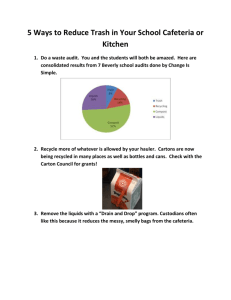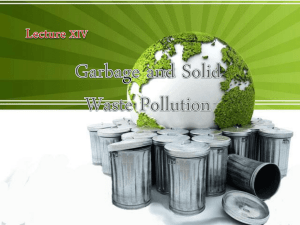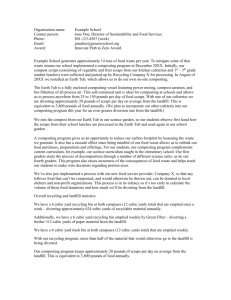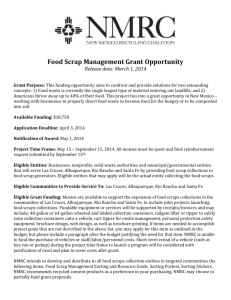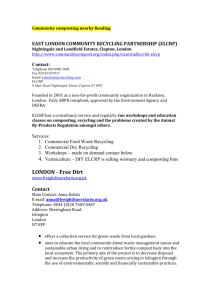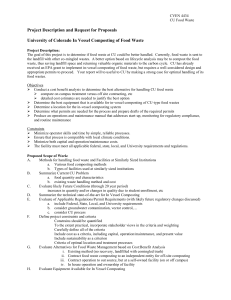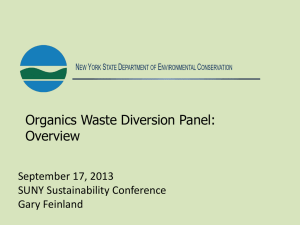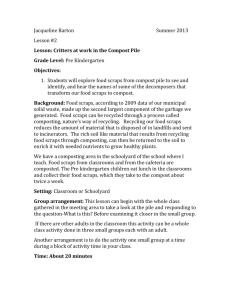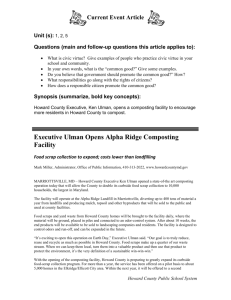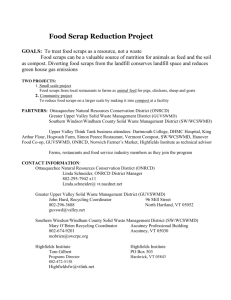Tips for Launching a Successful Restaurant Food Scrap
advertisement
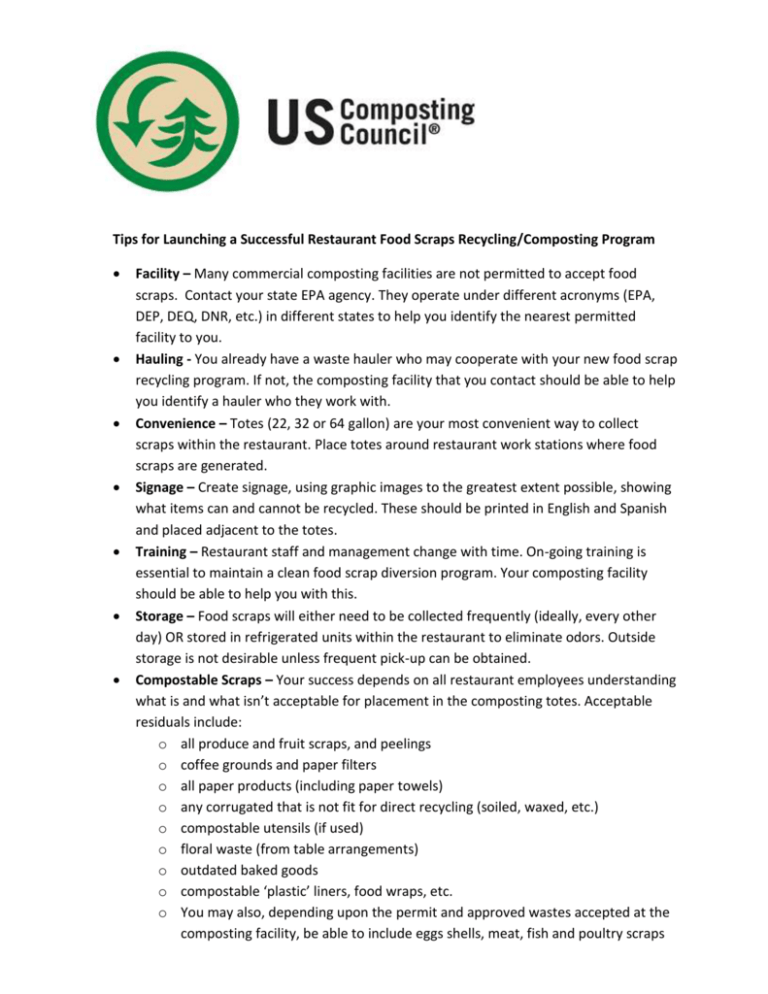
Tips for Launching a Successful Restaurant Food Scraps Recycling/Composting Program Facility – Many commercial composting facilities are not permitted to accept food scraps. Contact your state EPA agency. They operate under different acronyms (EPA, DEP, DEQ, DNR, etc.) in different states to help you identify the nearest permitted facility to you. Hauling - You already have a waste hauler who may cooperate with your new food scrap recycling program. If not, the composting facility that you contact should be able to help you identify a hauler who they work with. Convenience – Totes (22, 32 or 64 gallon) are your most convenient way to collect scraps within the restaurant. Place totes around restaurant work stations where food scraps are generated. Signage – Create signage, using graphic images to the greatest extent possible, showing what items can and cannot be recycled. These should be printed in English and Spanish and placed adjacent to the totes. Training – Restaurant staff and management change with time. On-going training is essential to maintain a clean food scrap diversion program. Your composting facility should be able to help you with this. Storage – Food scraps will either need to be collected frequently (ideally, every other day) OR stored in refrigerated units within the restaurant to eliminate odors. Outside storage is not desirable unless frequent pick-up can be obtained. Compostable Scraps – Your success depends on all restaurant employees understanding what is and what isn’t acceptable for placement in the composting totes. Acceptable residuals include: o all produce and fruit scraps, and peelings o coffee grounds and paper filters o all paper products (including paper towels) o any corrugated that is not fit for direct recycling (soiled, waxed, etc.) o compostable utensils (if used) o floral waste (from table arrangements) o outdated baked goods o compostable ‘plastic’ liners, food wraps, etc. o You may also, depending upon the permit and approved wastes accepted at the composting facility, be able to include eggs shells, meat, fish and poultry scraps and dairy products. The entity that completes your waste audit will be able to provide you with specific direction in this regard. The acceptance of postconsumer waste should also be explored with your composting facility. US Composting Council • 5400 Grosvenor Lane • Bethesda, MD 20814 • 301-897-2715 www.compostingcouncil.org www.buy-compost.com Compost: Nature's Way to Grow! Join us in Oakland, CA for our 22nd Annual Conference & Trade Show Oakland Marriot, January 27-30 2014
